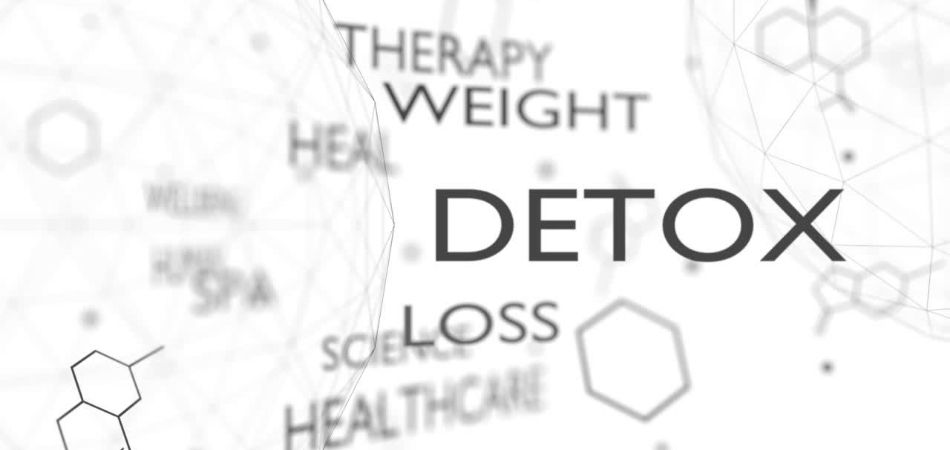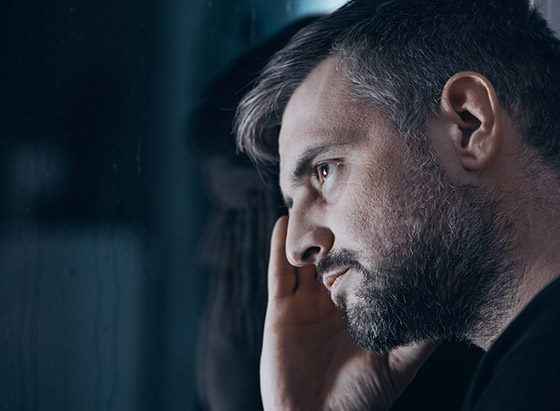Opioid detox

Written by:

Medically Reviewed by:
Last Updated:
May 6th, 2024
Physical dependence on opiates and opioids (we will use the two terms interchangeably on this page) can be incredibly difficult to overcome and can leave you feeling like you are completely trapped. However, opiate detox is an effective way to break the grip of opioids on your body and start the journey to recovery. At Sanctuary Lodge, we have helped countless people through the opioid detox process and seen them go on to start brand new lives, totally free of opiates.
What is opioid detox?
Opioid detox is the process of clearing all traces of opioids from your body. Detoxing from opioids can be difficult and uncomfortable, but it is an important first step on the road to recovery.
There many benefits to opioid detox, including:
- Improved physical and mental health
- Reduced risk of overdose
- A clean slate to begin opioid recovery therapy
What is opioid withdrawal?
Withdrawal refers to the symptoms that occur when you stop taking opioids after using them for a period of time. Opioid withdrawal symptoms can be uncomfortable and may even be dangerous, which is why it is important to detox under the care of a professional team like the one at Sanctuary Lodge.
Alongside opioid cravings, physical opioid withdrawal symptoms include:
- Muscular aches
- Teary eyes
- Sleeplessness
- Runny nose
- Excessive sweating
- Yawning
- Stomach cramps
- Diarrhoea
- Dilated pupils
- Chills
- Nausea and vomiting
- Hunger or loss of appetite
- Fatigue
- Lethargy
- Night sweats
- Tremors
- Clammy or cold skin
- Seizures
- Rapid heart rate
- High blood pressure
- Stroke
- Heart attack
There are also commonly a number of psychological opioids withdrawal symptoms including:
- Anxiety and agitation
- Fear
- Paranoia
- Panic
- Irritability
- Insomnia
The benefits of opioid detox
These withdrawal symptoms can look very scary but undergoing opioid detox at a professional detox centre like Sanctuary Lodge will ensure you are kept safe and comfortable during detox. You will have 24/7 medical support on hand with our professional medical team providing 24-hour care and support throughout the detox process. One of the biggest worries people have about entering opioid detox is the withdrawal experience so just knowing you will have this support can be a huge relief.
Another common worry is that you will relapse when withdrawal gets difficult. However, during detox at a professional centre, there will be no way for you to access opioids which will prevent any risk of relapse. Furthermore, upon admission, we will work with you to create a bespoke detox plan that is tailored to your individual needs. This will help to make your stay in opioid detox as enjoyable as possible to ensure you see out the process.
What can you expect when you first arrive at Sanctuary Lodge?
Entering opioid detox can be a little scary if you don’t know what to expect. To make it less intimidating, let us describe exactly what will happen when you first arrive at Sanctuary Lodge. We have three main admission times – 11 am / 1 pm / 3 pm – when you will be welcomed by our friendly and helpful staff who will show you to one of our nineteen en-suite bedrooms or two shared bedrooms (depending on which you chose) and make sure you are well settled in. You will also be shown the on-site gym, the communal living areas where you can socialise with the other residents during games night and evening movies and the spacious grounds for relaxing after therapy.
You will then receive a full medical assessment from our Consultant Psychiatrist. This will help our medical experts determine the extent of your condition and whether you can go through opioid detox safely or need to be prescribed an opioid replacement during withdrawal. If this is the case, the Consultant Psychiatrist will determine the right medication for you, including the correct dosage and tapering.
Once that is done, you can look forward to getting to know the staff and other clients and starting your opioid detox treatment.
Opioid withdrawal timeline
The exact duration of opioids withdrawal differs from person to person depending on a range of factors including:
- How long you have been taking opioids
- The type of opioids you have been taking (methadone, for example, takes longer to withdraw from than other opioids)
- Your age, weight and general health
- Whether you have any underlying mental health conditions
- Whether you abuse other substances as well as opioids
However, the opioids withdrawal timeline usually looks something like this:
- Opioids withdrawal symptoms can begin between 3-10 hours after you last use an opioid and may last about three days.
- Later withdrawal symptoms can peak after 72 hours and last about a week or more.
- You may also experience post-acute withdrawal symptoms (PAWS). These symptoms may occur weeks after detox and are of an emotional and psychological nature as your brain’s chemical balances begin to normalise. They include mood swings, anxiety, different levels of energy and disturbed sleep.
- The good news is that PAWS generally last for just a few days at a time, although they may recur for up to two years after recovery.
Can I detox from opioids at home?
Detoxing from opioids at home without professional assistance is never advised because it is usually ineffective and can also be very dangerous. Opioid withdrawal symptoms can be severe and uncomfortable, and without professional help, it is all too easy to relapse.
There are a number of reasons why detoxing at home is dangerous and usually fails:
- You will have access to opioids, which means there is a risk of relapse.
- Withdrawal symptoms can be severe and uncomfortable, so you may not be able to stick it out.
- You will not have access to professional medical help if you need it.
- Relapse is very dangerous after a period of abstinence because your tolerance will have lowered, meaning you are at risk of overdosing.
If you are considering detoxing from opioids at home, we urge you to reconsider and contact a professional opioids detox centre like Sanctuary Lodge instead. We offer a safe and effective opioid detox programme that will give you the best chance of recovery. Contact us today to find out more.
Common fears about opioid detox
There are many people who never get the help they need because they are afraid of what opioid detox will be like. We understand that the prospect of opioid withdrawal and detox can be daunting, but we want to assure you that there is nothing to be afraid of. Here are some common fears about opioid detox and the truth behind them:
“The withdrawal symptoms will be too much for me to handle”
Opioid withdrawal symptoms can be uncomfortable but when you undergo opioid detox at Sanctuary Lodge, you will be in a safe and comfortable environment with around-the-clock medical care. This usually means tapering you off opioids which is when you are slowly weaned off opioids over a period of time. Tapering allows your body to adjust and reduces the severity of opioid withdrawal symptoms. If your withdrawal symptoms are particularly severe, you may even be given medication to help ease them.
“I will relapse as soon as I leave opioid detox”
The truth is that opioid detox is just the first step on your journey to recovery. It is important that you have a solid plan in place for what comes next. At Sanctuary Lodge, we also provide comprehensive opioid therapy programmes alongside your detox as well as aftercare services when you leave. All of these together can significantly reduce the chances of relapse and help you build a foundation for long-term recovery.
“I am worried that people will judge me”
There is absolutely no need to worry about judgement at Sanctuary Lodge. We are a non-judgemental and supportive environment where you can feel comfortable and safe to focus on your recovery. Not only are the other clients at Sanctuary Lodge going through opioid detox, but our therapists have also all been through recovery themselves. They understand exactly what you are going through and will provide you with the support and guidance you need. As our former client, Ellen explained, “I got on with everybody – there is no judgement. You are all in there for the same reasons and you are just one big family.”
Is opioid detox a cure?
Opioid detox only enables you to overcome physical dependence on opioids, but opioid addiction also has a psychological component. This is why opioid detox should always be done in conjunction with comprehensive opioid rehab. At Sanctuary Lodge, we provide both of these stages as well as aftercare to help you achieve long-term recovery.
Our team of experts will work with you on every aspect of your condition so that you can live a full and happy life totally opioid-free. For more information or to get started at Sanctuary Lodge, get in touch with us today. The sooner you take the first step, the sooner you can begin your new life!






